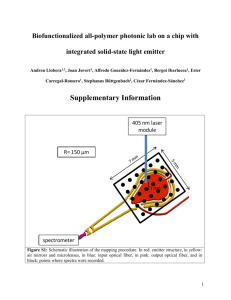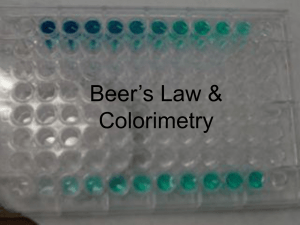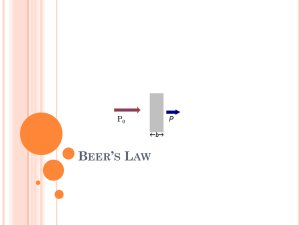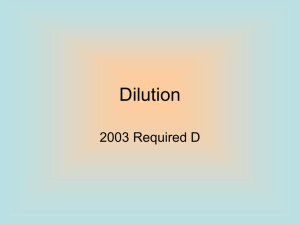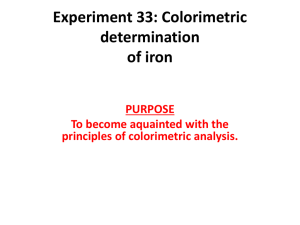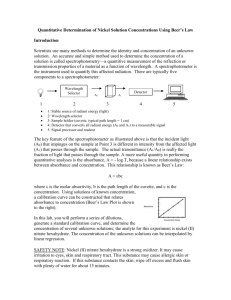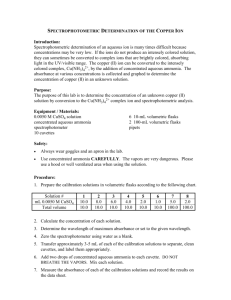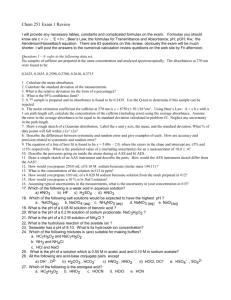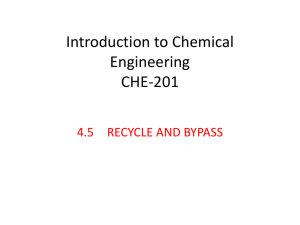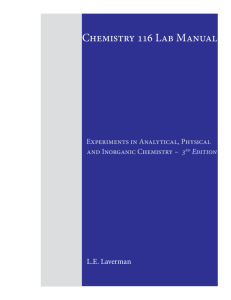Beers Law Calculations
advertisement
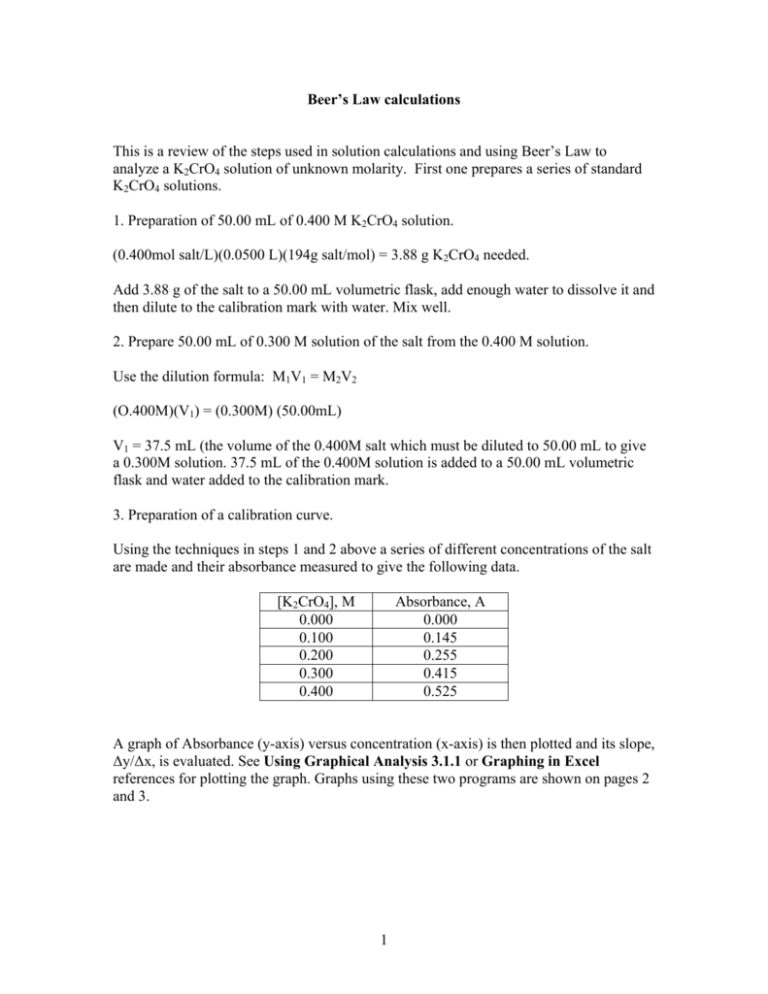
Beer’s Law calculations This is a review of the steps used in solution calculations and using Beer’s Law to analyze a K2CrO4 solution of unknown molarity. First one prepares a series of standard K2CrO4 solutions. 1. Preparation of 50.00 mL of 0.400 M K2CrO4 solution. (0.400mol salt/L)(0.0500 L)(194g salt/mol) = 3.88 g K2CrO4 needed. Add 3.88 g of the salt to a 50.00 mL volumetric flask, add enough water to dissolve it and then dilute to the calibration mark with water. Mix well. 2. Prepare 50.00 mL of 0.300 M solution of the salt from the 0.400 M solution. Use the dilution formula: M1V1 = M2V2 (O.400M)(V1) = (0.300M) (50.00mL) V1 = 37.5 mL (the volume of the 0.400M salt which must be diluted to 50.00 mL to give a 0.300M solution. 37.5 mL of the 0.400M solution is added to a 50.00 mL volumetric flask and water added to the calibration mark. 3. Preparation of a calibration curve. Using the techniques in steps 1 and 2 above a series of different concentrations of the salt are made and their absorbance measured to give the following data. [K2CrO4], M 0.000 0.100 0.200 0.300 0.400 Absorbance, A 0.000 0.145 0.255 0.415 0.525 A graph of Absorbance (y-axis) versus concentration (x-axis) is then plotted and its slope, ∆y/∆x, is evaluated. See Using Graphical Analysis 3.1.1 or Graphing in Excel references for plotting the graph. Graphs using these two programs are shown on pages 2 and 3. 1 4. Evaluation of the molarity of an unknown K2CrO4 solution. The absorbance of the unknown solution is measured under the same conditions as the standard solutions. Its absorbance is 0.250. Since slope (m) = Absorbance / concentration, [K2CrO4] = absorbance/slope = 0.250/1.32/M = 0.189M A more accurate method is using the y = mx + b formula obtained from the plotted graph where y is absorbance and x is the concentration. Thus 0.250 = 1.32x + 0.004 and x is 0.186 M. Beer’s Law Using Graphical Analysis 3.1.1 2 Beer’s Law Using Excel 3
